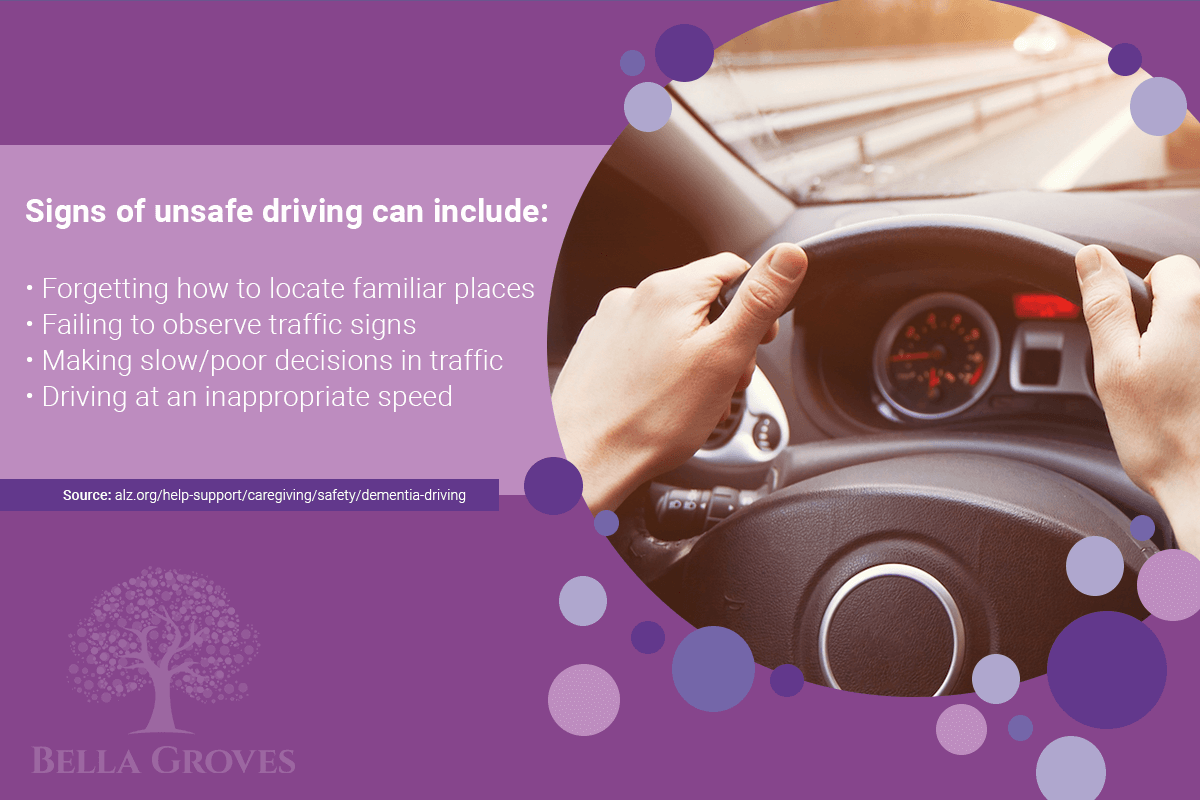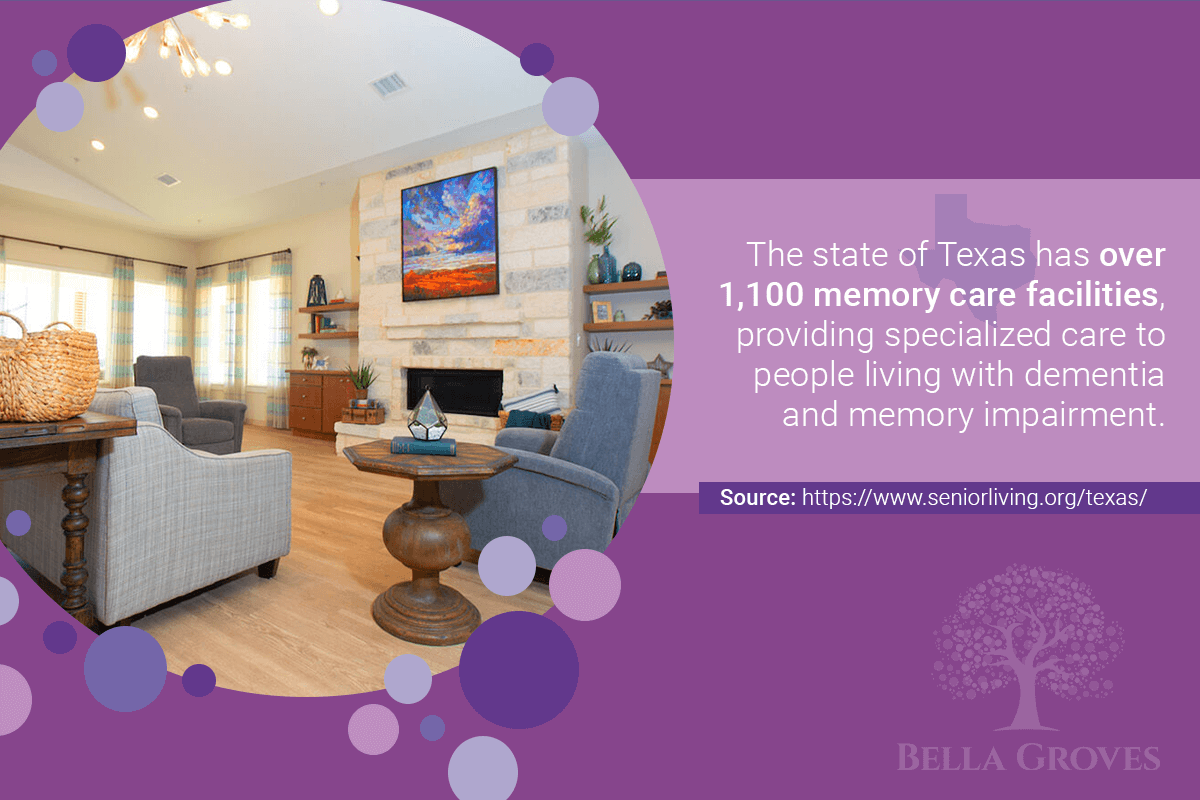
How to Talk About Driving with a Person Living with Dementia
Driving is a complex operation that requires many different skills. For a person living with dementia, continuing to drive may pose serious health and safety risks for themselves and other people on the road. For this reason, it is important to have a transparent and compassionate discussion with your family member about retiring from driving.
At Bella Groves, we want to help individuals and families impacted by dementia live with unconditional joy. In some cases, such as driving and dementia, that means lovingly helping a family member move on from something that may have been a source of joy for many years. Every person is unique, and every person living with dementia has different experiences, which might make the driving conversation challenging.
Fortunately, we have prepared strategies to follow that can help you – and your family member – move forward in your journey.
Start the Conversation Early
Driving has often been associated with independence. From the time you earned your license and sat behind the wheel for the first time, there has been a certain exhilaration and freedom that comes from getting out on the open road. For some, retiring from driving may feel like a loss of that freedom and independence.
It is important to understand how this feels and empathize with a person living with dementia who is being asked to give up something that may have been an important part of their daily lives for decades. You also want to start the conversation early, in a calm and loving way.
When talking to your family member about driving and dementia, create a framework that stresses the positives rather than the negatives. Be sure to have alternative transportation options available and explain the reasons (mostly safety-related) why giving up driving is the right option.
This conversation might not go well initially. It may even take a few different conversations before they come to peace with the decision. Allow them to voice their frustrations, fears, and sorrows – but it is equally important to remain firm in your resolve. Consider bringing in their primary care doctor or an outside specialist to perform a driving evaluation, which can help you determine when you should phase out driving and allow a neutral third party to give their unbiased opinion.
Consider a Driving Contract
The Alzheimer’s Association has created a helpful driving contract that makes it easy for families to plan for a gradual end to driving. In the early stages, a person living with dementia may still have strong cognitive function and retain the ability and desire to drive independently. If they can do so safely, taking away that freedom is unnecessary.
The issue that most often affects families is not whether to stop driving – it’s knowing when to stop. And for many families, that decision comes after it has become clear that the person living with dementia no longer can operate a vehicle. A driving contract helps you plan more carefully.
By signing a driving contract, a person living with dementia essentially agrees to give you decision-making power over when they stop driving. By doing this early in the journey, a person living with dementia can still drive, and you both have peace of mind knowing that when the time comes to stop, you will both be comfortable with the decision. In addition, having this articulated in writing adds another layer of accountability, making the process easier as the dementia symptoms progress.
Find Other Outlets for Independence
Because driving can be such an integral part of life for some people, giving it up may lead to frustration, anger, and sorrow. However, for many, it is not the driving itself but the freedom and control that it represents.
If possible, try to find other ways that your family member can exert independence and control over their lives. Even as dementia symptoms progress, a person living with dementia still desires a life of purpose and vitality. If they cannot experience that through driving, you may be able to help them find other positive outlets where they can experience fulfillment and joy.
Dementia and driving is not an easy conversation, but a necessary one. By starting the discussion early, you give yourself and your family member the best opportunity for a beneficial outcome.
At Bella Groves, we are committed to being your partner and resource throughout your journey with dementia. To learn more about dementia-related topics and access our library of educational materials, we encourage you to visit our website.


